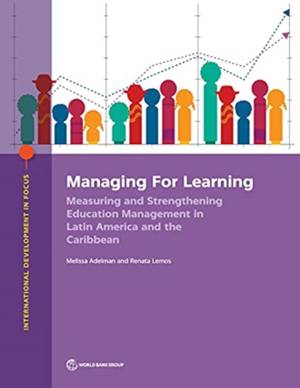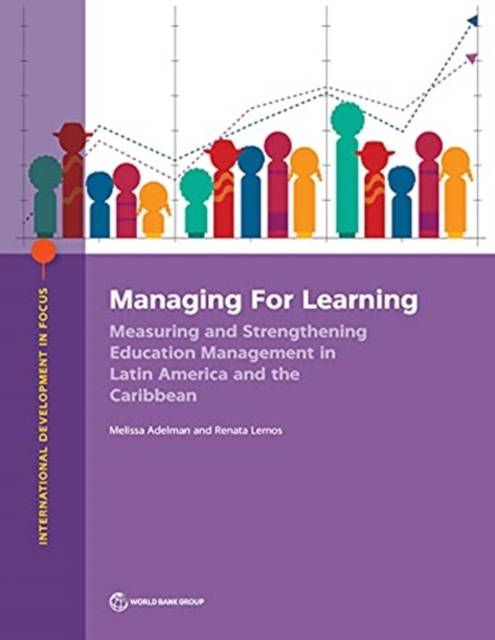
En raison d'une grêve chez bpost, votre commande pourrait être retardée. Vous avez besoin d’un livre rapidement ? Nos magasins vous accueillent à bras ouverts !
- Retrait gratuit dans votre magasin Club
- 7.000.000 titres dans notre catalogue
- Payer en toute sécurité
- Toujours un magasin près de chez vous
En raison de la grêve chez bpost, votre commande pourrait être retardée. Vous avez besoin d’un livre rapidement ? Nos magasins vous accueillent à bras ouverts !
- Retrait gratuit dans votre magasin Club
- 7.000.0000 titres dans notre catalogue
- Payer en toute sécurité
- Toujours un magasin près de chez vous
Managing for Learning
Measuring and Strengthening Education Management in Latin America and the Caribbean
Melissa Adelman, Renata Lemos
59,45 €
+ 118 points
Description
How can countries make sustainable gains in student learning at scale? This is a pressing question for Latin America and the Caribbean (LAC) - and the developing world more broadly - as countries seek to build human capital to drive sustainable growth. Significant progress in access has expanded coverage such that nearly all children in the region attend primary school, but many do not gain basic skills and drop out before completing secondary school, in part due to low-quality service delivery. The preponderance of evidence shows that it is learning - and not schooling in and of itself - that contributes to individual earnings, economic growth, and reduced inequality. For LAC in particular, low levels of human capital are a critical factor in explaining the region's relatively weak growth performance over the last half century. The easily measurable inputs are well-known, and the end goal is relatively clear, but raising student achievement at scale remains a challenge. Why? We propose that part of the answer lies in management - the processes and practices that guide how inputs into the education system are translated into outputs, and ultimately outcomes. While management (and related concepts, such as institutions, governance, or leadership) is often mentioned as an important factor in education policy discussions, relatively little quantitative research has been done to define and measure it. And even less has been done to unpack how and how much management matters for education quality. In this study, we begin filling these gaps, with new conceptual and empirical contributions that can be synthesized in four key messages: (1)Student learning is unlikely to improve at scale without better management. (2)Management affects how well every level of an education system functions, from individual schools to central technical units, and how well they work together. (3)Management quality can be measured and should be measured as a catalyst for improvement. (4)Several pathways to strengthening management are open to LAC countries now, with the potential for significant results. The study elaborates on each of these messages, synthesizing recent data and research and presenting the results of six new papers written to inform this report. The target audience for the Executive Summary is policymakers across LAC (and beyond) who are seeking approaches to strengthening their systems at scale. The target audience for the study overall includes the researchers and technical advisors who work on topics related to education management in development organizations, governments, think tanks, and other institutions across LAC.
Spécifications
Parties prenantes
- Auteur(s) :
- Editeur:
Contenu
- Nombre de pages :
- 100
- Langue:
- Anglais
- Collection :
Caractéristiques
- EAN:
- 9781464814631
- Date de parution :
- 04-06-21
- Format:
- Livre broché
- Format numérique:
- Trade paperback (VS)
- Dimensions :
- 216 mm x 279 mm
- Poids :
- 349 g

Les avis
Nous publions uniquement les avis qui respectent les conditions requises. Consultez nos conditions pour les avis.






